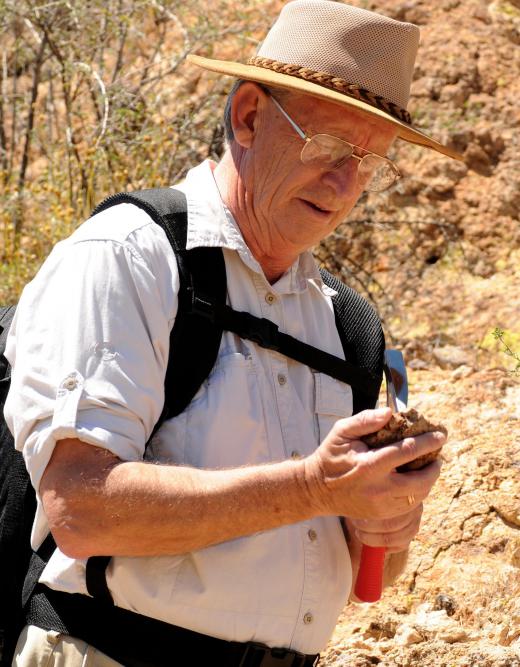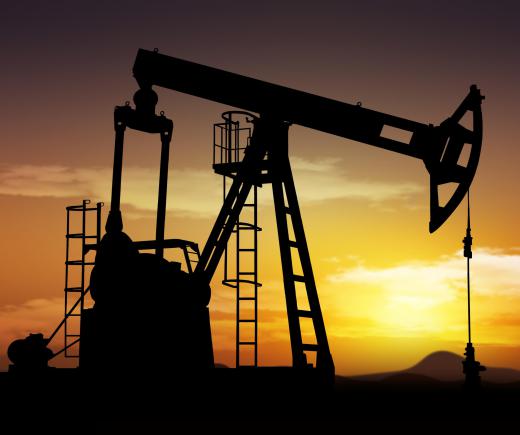What is a Petroleum Geologist?
 Mary McMahon
Mary McMahon
A petroleum geologist is a scientist who specializes in identifying and exploiting deposits of hydrocarbon fuels. The global demand for various hydrocarbon products, from gas to run personal cars to plastics to package computers, is very high, and as a result, petroleum geologists tend to be in high demand, especially if they have an established track record in the industry. These geology professionals can work for oil companies, governments, or private consulting firms, with salaries which vary widely, depending on where they work.
To become a petroleum geologist, someone studies geology in college, focusing on petroleum geology. Graduation with a bachelor's can provide the student with basic entry into the field, or he or she can pursue an advanced degree which comes with more training and more work possibilities after graduation. Students also study topics like chemical engineering, geochemistry, and geophysics, as these skills will be needed when evaluating potential oil deposits.

Petroleum geologists are hired to look at potential oil-bearing sites, conducting a number of tests to learn about the topography of the area and what might be lying underneath. These tests include assessments of the type of rock present, and whether or not pockets of trapped oil and gas are under the earth. Many people working in this position rely on advanced computer programs which can interface with underground imagers, seismometers, and other tools which can be used to explore beneath the surface of the earth without actually cutting into it. If a petroleum geologist determines that a site is probably oil bearing, he or she can start to determine where a drill should be placed.

In the process of oil exploration, several test wells may be sunk to create a mud log, a chart which graphs the various types of rock and sediment found in the test wells. Mud logs can be useful for petroleum geologists who want to learn the extent of potential oil deposits, to decide whether or not a site is worth continued exploration and development. These scientists are also involved in the process of establishing permanent wellheads and managing an oil field to get the highest possible yield out of it.
In addition to working with underground deposits of oil, petroleum geologists can also work with oil shale and other types of petroleum deposits. Because global demand for oil is constantly rising, a good petroleum geologist stays several steps ahead of the field, providing oil companies with new avenues of potential exploration before supplies at existing sites dwindle. It is also common for he or she to belong to a professional organization, to keep track of advances in the field and gain access to networking possibilities.
AS FEATURED ON:
AS FEATURED ON:












Discuss this Article
Post your comments